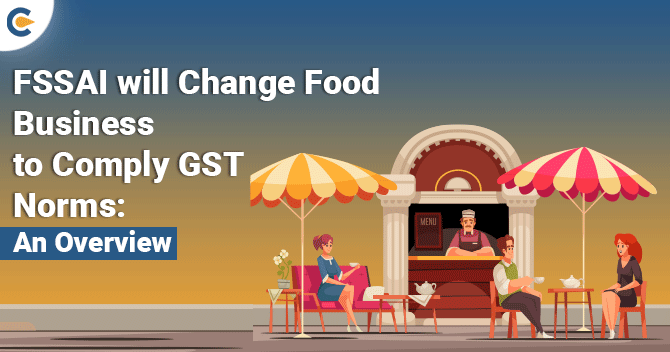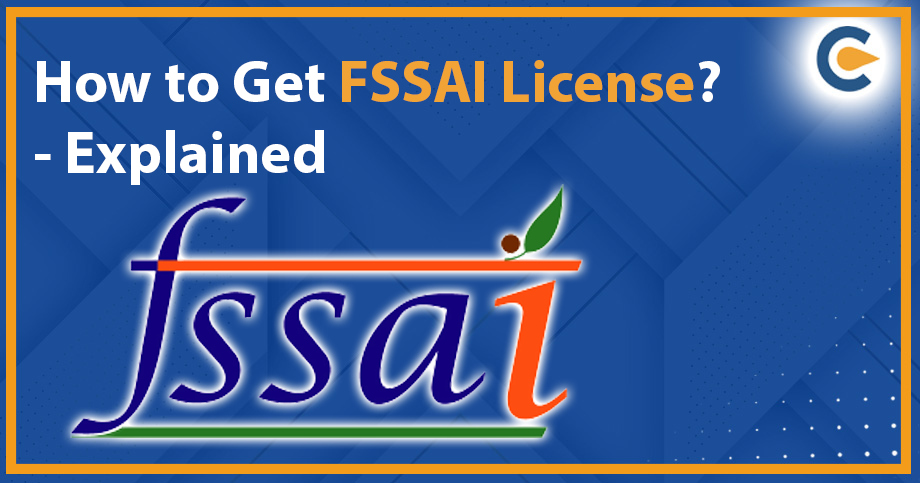The Food Safety and Standards Authority of India (FSSAI) remarked that it would reclassify and rearrange food business based on revenue to comply with the goods and services tax (GST). The CEO of FSSAI will change food Business to comply with the GST & MSME regulations, reclassify the types of food businesses based on revenue. He also said on the category of food businesses with an annual turnover of Rs 12 lakh would be raised to Rs 20 lakh. Besides, the FSSAI is building an e-system to track whether food enterprises are adhering to safety standards or not. In the next 2-3 months, the compliance monitoring system will be ready. Scroll down to check more about FSSAI and why FSSAI will change food Businesses to comply With GST norms.
Meaning of FSSAI
The Food Safety and Standards Authority of India (FSSAI), founded under the Food Safety and Standards Act, 2006, combines different acts and directives that had previously dealt with food-related issues in various Ministries and Departments. The Food Safety and Standards Authority of India (FSSAI) established to establish science-based standards for food articles & regulates their manufacture, storage, distribution, sale, and import to assure the availability of safe and wholesome food for human consumption.
Functions of FSSAI
- Regulations are being drafted to provide standards and norms for food goods and a method for enforcing the various criteria that have been announced.
- It is developing processes and criteria for accreditation certification bodies that work with food enterprises to certify their food safety management systems.
- Establishing procedures and guidelines for laboratory accreditation and notification of accredited laboratories.
- To give scientific advice and technical assistance to the Central Government and State Governments in formulating policies and laws in areas that directly or indirectly affect food safety and nutrition.
- Collect and compile information on food consumption, biological risk, contaminants in food, residues of various pollutants in foods, emerging dangers, and the implementation of a quick alert system.
- Creating a national information network so that the public, consumers, Panchayats, and others may get timely, accurate, & objective information regarding food safety and other problems of concern.
- Provide training programs for people who work in the food industry or want to work in the food industry.
- Participate in the formulation of international food, sanitary, and phytosanitary standards.
- Increase public awareness about food safety and standards.
Registration under FSSAI
All food enterprises operating in India must register with the FSSAI, and the basic registration is not the same as an FSSAI license. Individuals can complete the FSSAI basic registration online by using the Food Licensing and Registration System to submit a registration form. Furthermore, the FLRS system allows food industry owners to track their applications and learn more about new rules and modifications. In India, about 35 states and union territories now offer an online licensing or registration certificate. The FSSAI registration can last anywhere from one to five years, depending on the business owner’s preference. Individuals should be having the option of selecting a time window.
Different Types of FSSAI Registration
Every food business owner’s ultimate goal should be to maintain food safety and satisfaction. To help achieve this goal, the government[1] formed the Food Safety and Standards Authority of India. Depending on the nature of their business, business owners can choose from three different forms of FSSAI registrations.
- For large food establishments, a centralized license is required.
- Medium-sized food establishments require a state license.
- Small food enterprises must complete a basic registration.
Documents required for the registration
- Identification of a Photo Ration card, voter ID card, PAN card, driving license, passport, Aadhaar card, senior citizen card, or department issued ID are examples of identification of the food business operator.
- Product categories are listed below.
- Completed and signed B – Form.
- An Articles of Association / Partnership Deed / Certificate of Incorporation / Memorandum of Association.
- Furthermore, documentation of the business’s address: tax receipts, a sale title, or a lease agreement.
- NOC from the municipality/panchayat, health department for the food safety management system plan.
- Obtaining raw materials.
- Filled out Water test reports (Form IX).
- Businesses who want to trade globally should use the Import Export Code.
- List of necessary equipment.
- List of partners and directors.
FSSAI and GST
FSSAI will change food business according to the GST norms Businesses with an annual turnover of more than Rs 20 lakh are compulsory to pay GST under the GST regime, which went into effect on July 1, 2017. As per the CEO of FFSAI, he said that the regulator emphasizes self-compliance with food safety regulations, for which enterprises are being trained to ensure that each business has at least one trained food safety advisor/officer. Presently, FSSAI number is necessary to be put on packaged food labels. Still, the challenge lies primarily in institutions such as restaurants, mithai shops, caterers, even retail stores, etc. Therefore, it is mandatory for the food business that operates in the country to deal on receipts, invoices, or bills of sale of items, most of which are considered micro, small, and medium-sized businesses and must include their 14-digit FSSAI license/registration number.
Conclusion
We can conclude here that, as per the new guidelines of GST for Food enterprises, the FSSAI Will change food business to comply with GST norms. In response, the CEO of FSSAI remarked that they would rearrange food business to comply with the GST & MSME regulations, reclassify the types of food businesses (KoB) based on revenue. FSSAI number is necessary to be put on packaged food labels, but the challenge lies primarily when it comes to institutions such as restaurants, mithai shops and caterers.
Read our article:FSSAI Registration Fees and Various Aspects











